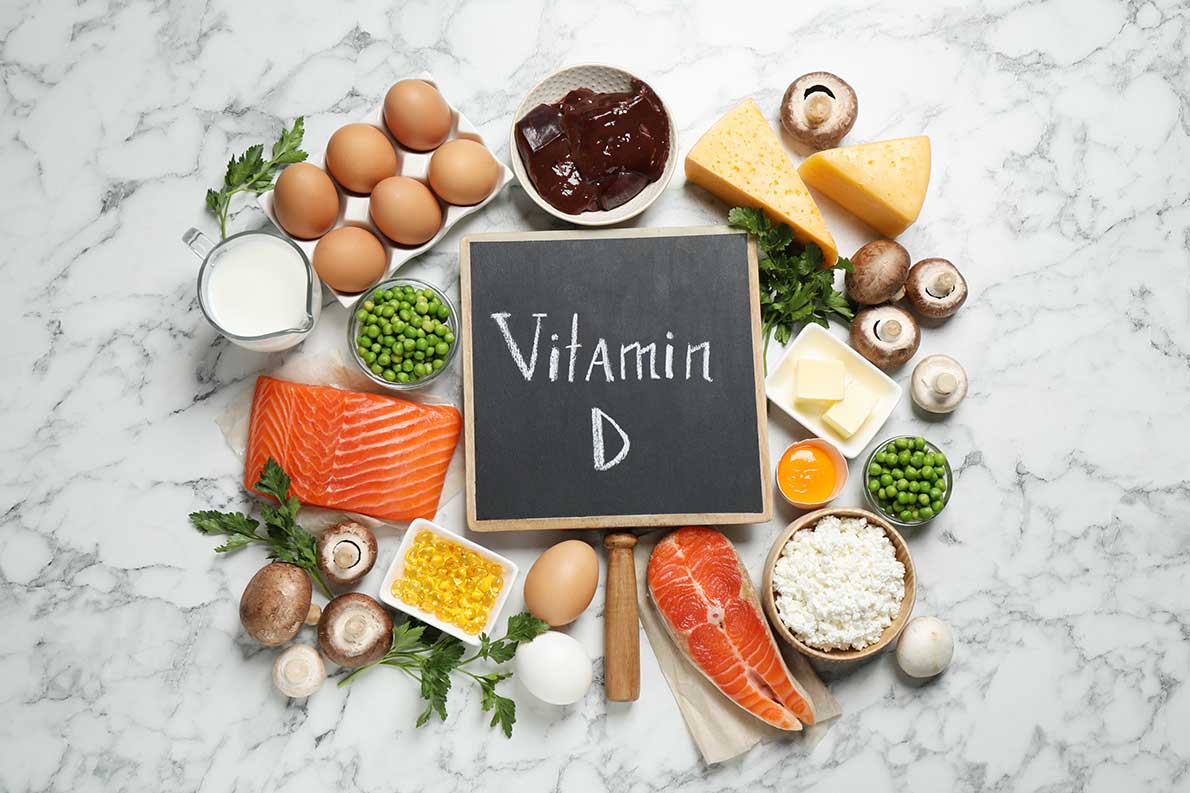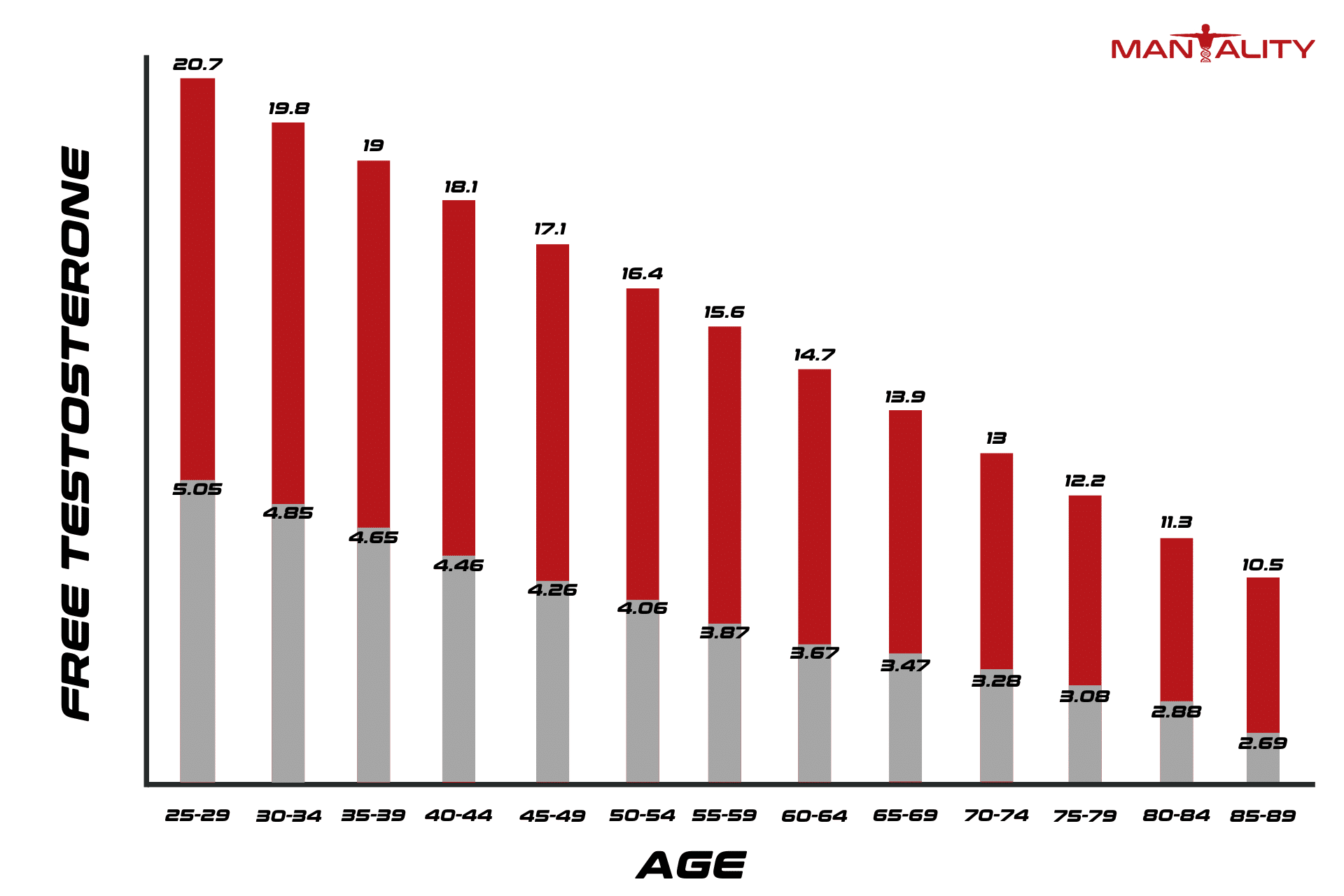When it comes to optimizing testosterone levels, you might be surprised to learn that vitamin D plays a crucial role. Commonly known as the “sunshine vitamin,” vitamin D does more than just support bone health—it’s also connected to testosterone production, energy levels, and overall vitality.
So, does vitamin D increase testosterone? Let’s dive into the research and explore how this essential vitamin might be a key player in testosterone optimization.
Does Vitamin D Increase Testosterone?
Studies suggest that vitamin D may indeed have an impact on testosterone levels. In particular, research has found a relationship between vitamin D levels and testosterone concentrations in men.
In a notable cross-sectional study, researchers observed that men with higher levels of vitamin D also had higher levels of total testosterone. This finding has led many to believe that vitamin D supplementation could help increase testosterone levels, especially for those who are deficient.
Why Is Vitamin D So Important for Testosterone?
Vitamin D affects various hormones in the body, including those related to testosterone. Testosterone production relies on multiple factors, including the presence of certain vitamins and minerals.
Vitamin D receptors (VDR) are present in cells throughout the body, including the testes, where testosterone is produced. By activating these receptors, vitamin D plays a role in supporting the processes that lead to healthy testosterone levels in men.
Can Vitamin D Increase Testosterone?
There’s promising evidence that vitamin D supplementation may indeed boost testosterone. In one study, men with low vitamin D levels who took high doses of vitamin D saw an increase in their serum testosterone levels.
High-dose vitamin D can be particularly effective in those who are vitamin D deficient. For men wondering, “can vitamin D increase testosterone?”—the answer appears to be yes, especially if your vitamin D levels are low to begin with.
Vitamin D Deficiency and Its Impact on Testosterone
Vitamin D deficiency is common and can have numerous health effects, one of which might be lower testosterone levels. Low vitamin D levels mean that there’s less vitamin D available to activate those VDRs and support testosterone production.
The effect of vitamin D on testosterone becomes especially relevant in cases of deficiency. Signs of low vitamin D include fatigue, muscle weakness, and low mood—all of which can also overlap with symptoms of low testosterone.
How Vitamin D Supplementation Helps
For men looking to increase testosterone levels, vitamin D supplementation might be an easy, effective way to help boost their hormone levels. Since vitamin D is fat-soluble, it’s generally recommended to take it with a meal that includes healthy fats for optimal absorption.
Regular supplementation can improve vitamin D levels, potentially leading to an increase in testosterone production over time.
Here’s how vitamin D supplementation may help:
- Boosts total testosterone levels: Higher vitamin D levels may lead to higher total testosterone.
- Improves serum testosterone: Vitamin D supplementation can support a healthy testosterone concentration in the bloodstream.
- Enhances energy and mood: Higher testosterone levels in men can improve energy, reduce fatigue, and lift mood.
Other Health Benefits of Vitamin D
Apart from supporting testosterone, vitamin D has numerous other health benefits. As a key nutrient in public health, vitamin D promotes immune function, supports bone density, and may reduce the risk of certain chronic conditions. Men who take vitamin D regularly for testosterone optimization also benefit from these additional effects, making it a win-win situation.

The Relationship Between Vitamin D and Testosterone Production
The relationship between vitamin D and testosterone levels in men is complex and fascinating. Studies show that vitamin D may influence the levels of follicle-stimulating hormone (FSH), which is involved in sperm production and overall reproductive health. The connection between vitamin D and FSH underscores the broader role of vitamin D in male hormonal health. Additionally, research continues to explore how vitamin D interacts with other hormones to maintain a balanced endocrine system.
High-Dose Vitamin D: What You Need to Know
For some men, a standard dose of vitamin D may not be enough to make a significant difference. High-dose vitamin D can be particularly effective, especially for those with very low levels of vitamin D. However, it’s essential to talk with a healthcare provider before starting a high dose, as too much vitamin D can lead to adverse effects, such as an increased risk of calcium buildup in the blood.
The Bottom Line: Optimizing Testosterone Through Vitamin D
The link between vitamin D and testosterone optimization is well-supported by research, showing that maintaining adequate vitamin D levels can have a positive effect on testosterone concentrations. Men interested in optimizing testosterone should consider checking their vitamin D levels and, if necessary, incorporating vitamin D supplementation into their routine.
Key Takeaways
- Vitamin D affects testosterone: The vitamin supports testosterone production, particularly when levels are low.
- Supplementation can help: Vitamin D supplementation, especially in high doses, can boost testosterone levels in men with a deficiency.
- Check your levels: Before taking high doses, consider a blood test to see where your vitamin D levels currently stand.
If you’re aiming to optimize testosterone naturally, vitamin D might be a simple and effective solution to explore. Whether through sun exposure, diet, or supplementation, boosting your vitamin D levels could be the key to a healthier, more vibrant life.




